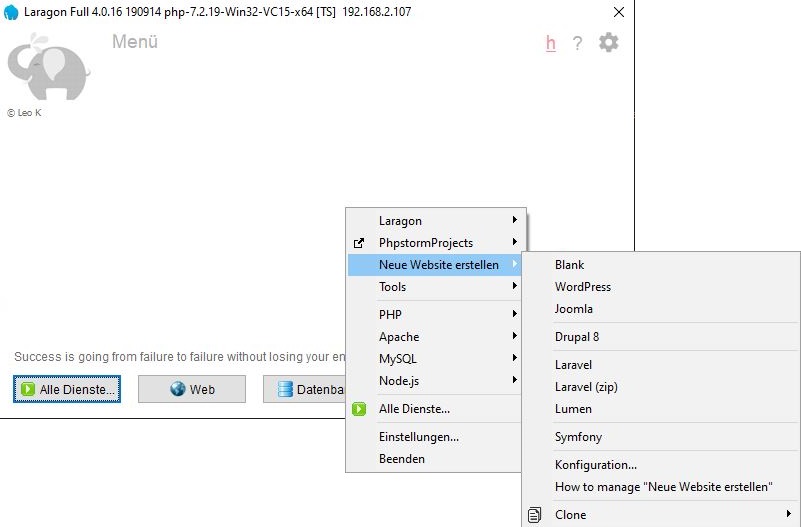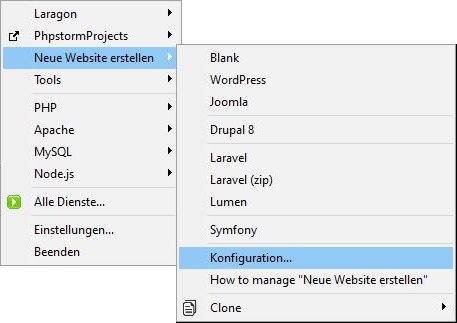Joomla has a quite ugly configuration file. configuration.php is cluttered and sorted i a very strange way?
<?php
class JConfig {
public $offline = '1';
public $offline_message = 'Wartungsmodus';
public $display_offline_message = '1';
public $offline_image = '';
public $sitename = 'joomlavel-joomla-dev';
public $editor = 'tinymce';
public $captcha = '0';
public $list_limit = '20';
public $access = '1';
public $debug = '0';
...
...
...
public $feed_email = 'none';
public $log_path = '/logs';
public $tmp_path = '/tmp';
public $lifetime = '15';
public $session_handler = 'database';
public $shared_session = '0';
}I really like https://12factor.net/ and its twelve-factor app approach. configuration recommendation is to seperate config in a way that they are language- and OS-agnostic. But how to do this? Here is our approach:
public function __construct(){
if (file_exists(SELF::JoomLavelApiDirectory.'.env')) {
$env = parse_ini_file (SELF::JoomLavelApiDirectory.'.env',false, INI_SCANNER_RAW);
$this->sitename = $env['APP_NAME'];
$this->debug = (int)filter_var($env['APP_DEBUG'], FILTER_VALIDATE_BOOLEAN);;
$this->live_site = $env['APP_URL'];
$this->dbtype = $env['DB_CONNECTION'].'i';
$this->host = $env['DB_HOST'];
$this->db = $env['DB_DATABASE'];
$this->user = $env['DB_USERNAME'];
$this->password = $env['DB_PASSWORD'];
$this->mailfrom = $env['MAIL_FROM_ADDRESS'];
$this->fromname = $env['MAIL_FROM_NAME'];
$this->smtpport = $env['MAIL_PORT'];
$this->smtphost = $env['MAIL_HOST'];
$this->smtpuser = $env['MAIL_USERNAME'];
$this->smtppass = $env['MAIL_PASSWORD'];
}
}The configuration.php could also be seperated in blocks:
#APP
public $live_site = '';
public $sitename = "joomla";
#DB
public $dbtype = 'mysqli';
public $host = 'localhost';
public $user = 'groot';
public $password = '';
public $db = 'joomlavel-dev';
public $dbprefix = 'f862e_';
#SESSION
public $session_handler = 'database';
public $shared_session = '0';
public $lifetime = '15';You can see the files in our Github::JoomLavel project.



